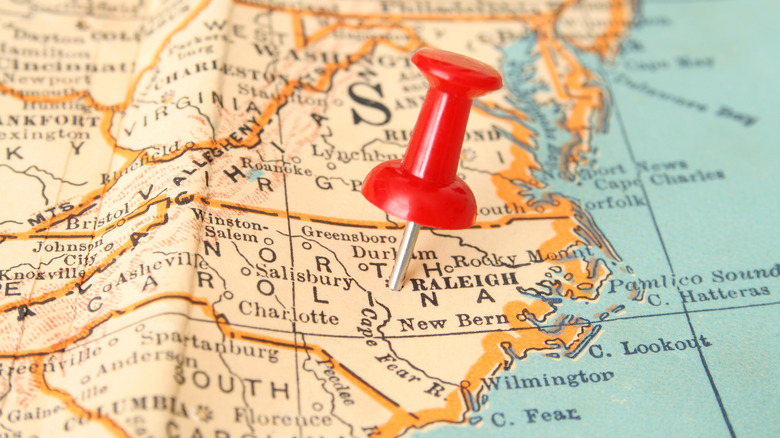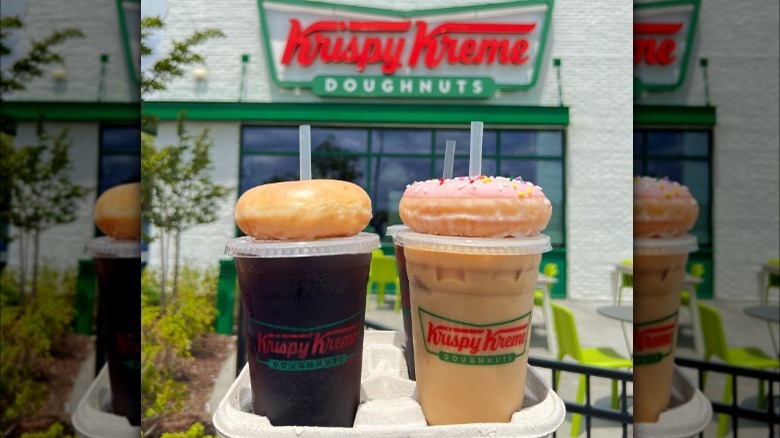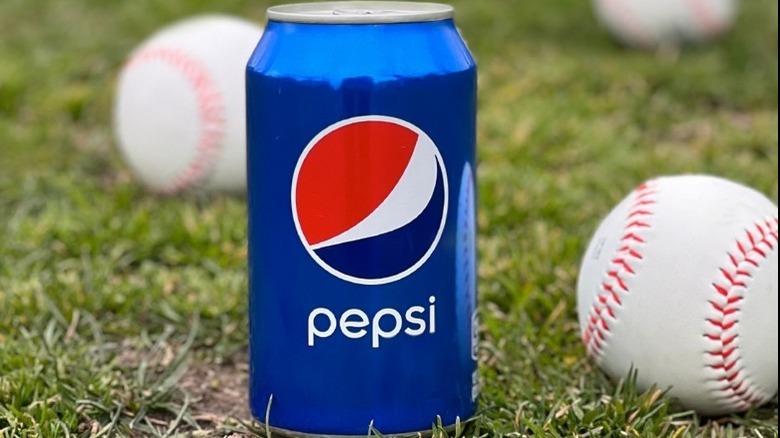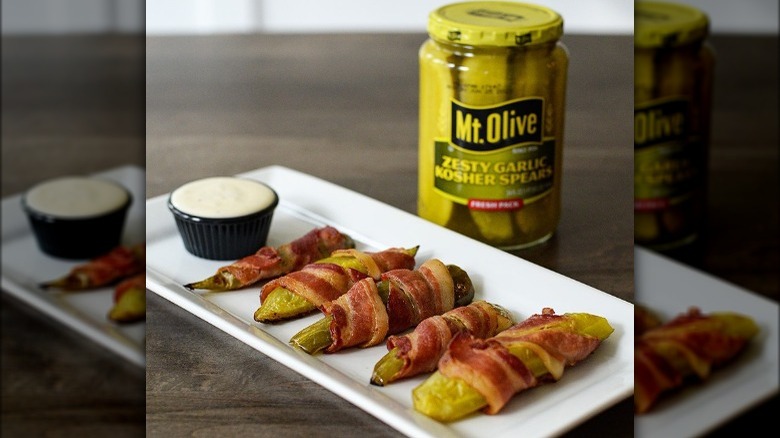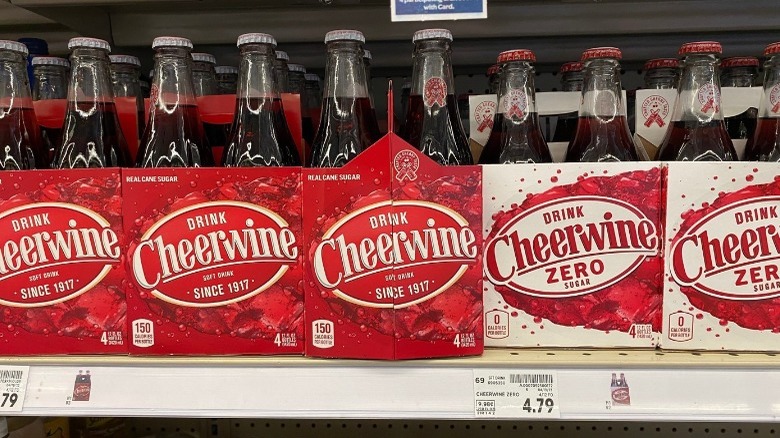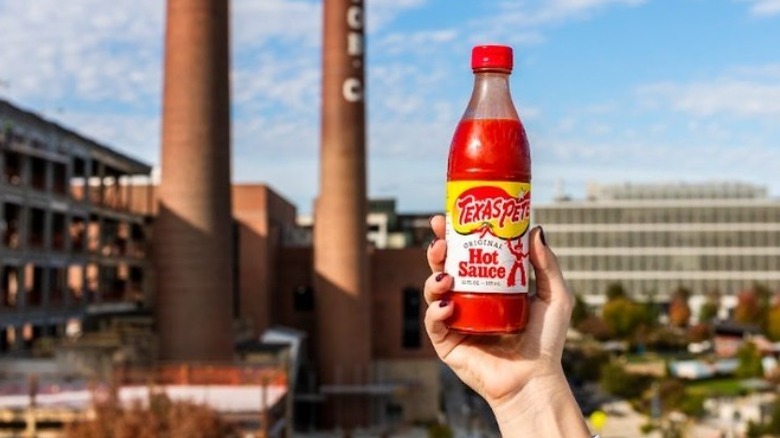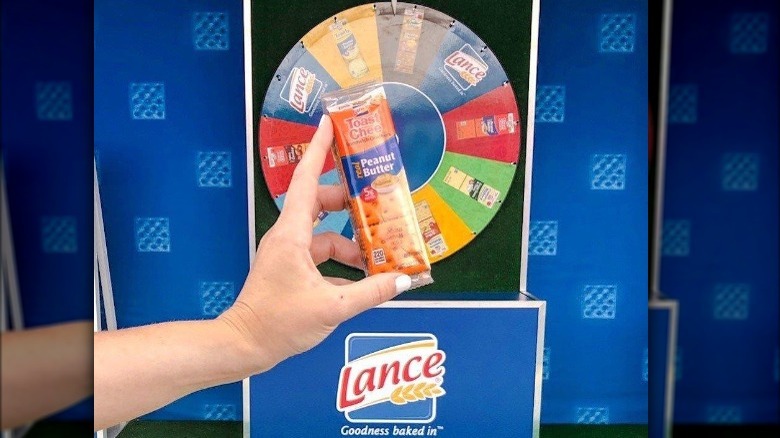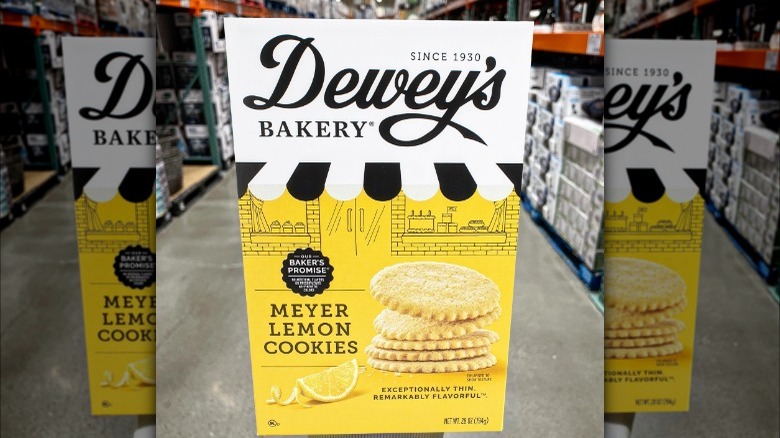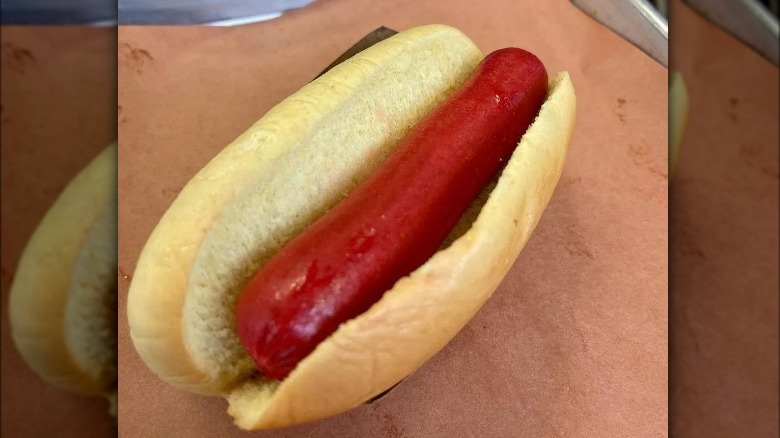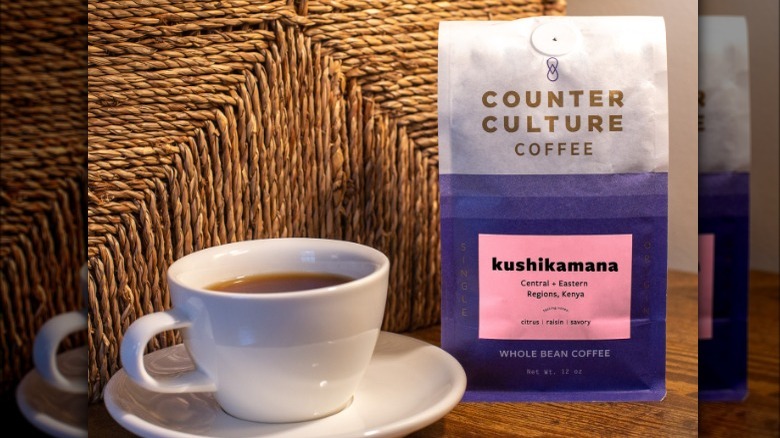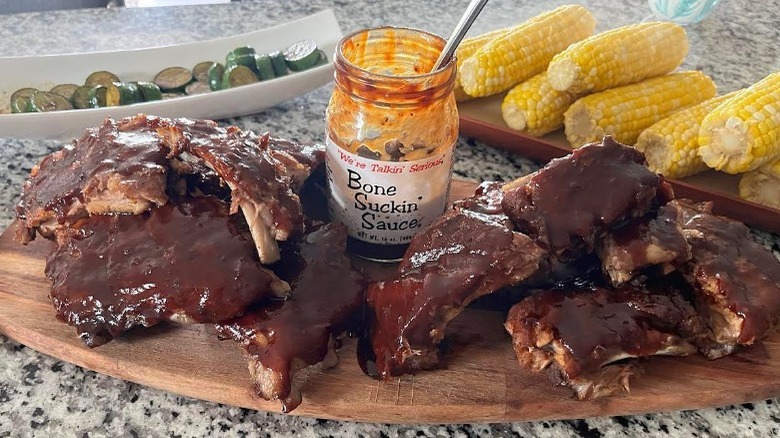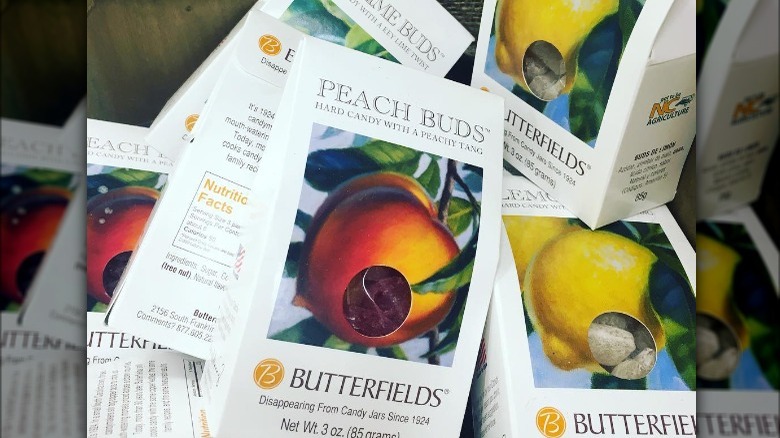11 Foods That Are Surprisingly From North Carolina
Picture this: You're at the grocery store perusing the aisles, knocking out your shopping list, and looking for something that may catch your eye. There may have been a few items that blend within the stocked shelves that you've regularly seen or may have been curious about, but not realized where they're from—North Carolina. From the outermost corners of the United States to even across the world, many of these products have made a name for themselves outside of their humble, southern home state. Not bad for brands with small-town roots, with origin stories coming from small towns ranging from North Carolina's coast to cities within the foothills of the Blue Ridge Mountains.
But what makes these brands so special, and popular enough to have such prevalence and reach? From sodas to sauces and even pickles, here are 11 foods you may not have realized hailed from the Tar Heel state.
1. Krispy Kreme Donuts
A simple yeast donut that started from one small North Carolina shop has set the world ablaze –– or shall we say, a-glazed –– with its light-as-a-feather consistency and irresistible sweetness. Winston-Salem is a small city nestled in the foothills of the state, and it just so happens to be the homeland of these delectable donuts. On July 13, 1937, founder Vernon Rudolph opened the very first Krispy Kreme donut storefront, complete with a "donut window" convenient for customers passing by. As the years went on, more stores started opening up and down the East Coast, complete with their own machinery to mass-produce fresh donuts and to keep the hot dozens going and going. Today, Krispy Kreme has become an international icon with a presence in 31 countries, with 375 locations and counting in the United States. Within that 375, 31 of these are in the company's home state.
2. Pepsi
Who knew that Coca-Cola's nemesis had humble origins in North Carolina? Before the Super Bowl halftime shows and celebrity campaigns, this soda was known as "Brad's Drink" within the coastal town of New Bern, North Carolina. Caleb Bradham was a local pharmacist who compounded key ingredients of kola nuts, lemon oil, caramel, sugar, and water to create the basis of Pepsi as we know it today. Its original purpose was to serve as a digestive aid, with "Pepsi" coming from the Latin "dyspepsia," or in more simple, medical terminology, indigestion. Since Caleb's creation in 1893, they've gone bankrupt more than once, launched the first-ever advertising jingle, and rebranded with a red, white, and blue logo. Pepsi is now a global conglomerate present in more than 200 countries.
So next time someone asks, "Is Pepsi okay?" know that it is surely more than just okay. It's a staple, not just for North Carolinians, but for all Pepsi lovers across the world.
3. Mt. Olive Pickles
Many would paint a picture of the "American Dream" as being a success story just like the one of Mount Olive's founder, Shrikey Baddour. According to Our State Magazine, Mr. Baddour arrived from Lebanon to the United States in the early 1890s, leaving behind civil conflicts and a failing economy in pursuit of opportunity and a new chapter for his family.
After taking notice that local farmers were in a bit of a pickle with their unused surplus of cucumber crops, Baddour decided to take action and launch a pickle business. While it wasn't successful the first time around, it caught the attention of I.F. Witherington, a Mount Olive local. Working with Baddour and 37 other shareholders, Mount Olive Pickle Company was created officially in 1926. While Mr. Baddour did not stay with the company long term, it is through his efforts that the local town of Mount––and pickles, as we know––have been irrevocably changed in the best way. According to the brand, it remains the largest privately held pickle company in the country.
4. Cheerwine
Dr. Pepper usually gets all the credit as the premier cherry-flavored soda on the market, but take this as your nudge to give Cheerwine a go. Over a hundred years ago in Salisbury, North Carolina, L.D. Peeler was trying to think of ways to make a soda that still tasted sweet even in the midst of a sugar shortage. His previous venture, Mint Cola, had fallen short due to WWI driving ingredient shortages, namely sugar. After procuring a distinct cherry flavor recipe, Peeler came up with "Cheerwine" based on the concoction's appearance and, according to Cheerwine, "[its] cheery disposition." While the name's pretty straightforward, the flavor is anything but.
Today, this cherry-centered, sparkling soda is not only the argued lifeblood of its home state but a popular regional soda distributed throughout the country. If you ever find yourself in Salisbury, NC, you might stumble on Cheerwine's namesake festival, which it has hosted there since 2017.
5. Texas Pete Hot Sauce
Nothing Texan about this hot sauce, just the theme. Texas Pete hot sauce was formulated by the Garner family in Winston-Salem, North Carolina. As the story goes, the Garner family was just trying to ride out the Great Depression with seven kids. The two oldest sons were frequenting Durham, as oldest son Paul went to Duke University and second-oldest Thad decided to forgo college and buy a barbeque restaurant. Choosing not to invest in higher education ended up being lucrative for family generations to come, as the first successful product was barbeque sauce. From there, the family was inspired by Mexican hot sauces and during branding decisions, decided on the border state Texas in combination with "movie cowboy" imagery and the use of one son's nickname, Pete.
While the brand kicked off in Durham, you can find all operations and the original (still operating!) factory today at the family's original home site in Winston-Salem.
6. Lance
Ever get a pack of orange-hued cheddar and peanut butter sandwich crackers from a vending machine? You most likely have Lance to thank for these filling snacks, and more particularly, founder Philip L. Lance. Working as a food broker in 1913 in Charlotte, North Carolina, he was able to turn lemons into lemonade––rather, peanuts into a multi-million dollar company––when he had to figure out how to sell 500 pounds of peanuts. After selling them for a nickel per bag, people wanted more; the brand expanded to peanut butter, and then to the famous peanut butter crackers.
Fast forward to 2010, and Lance merged with Snyder's, the pretzel and chip giant responsible for brands like Tom's and Snyder's New Hanover. It was then bought again by Campbells in 2018, projecting it to new heights as a snack superstar. Next time you bite into Lance's peanut butter cracker sandwich, you have Philip L. Lance and North Carolina to thank.
7. Dewey's Bakery
Winston-Salem, North Carolina has a deep history with the Moravian community. In the 1700s, Protestant settlers began to immigrate from the kingdom of Moravia to the state and established the settlement of Bethabara. While Bethabara was later incorporated into the larger city, its roots remain especially with Moravian baked goods. Moravian cookies are very thin tea cookies and are still made today in the city—and not just in the historical quarter. According to Dewey's Bakery, the business got its start in the 1930s, with Moravian cookies as the core of its wares. It has continued to grow, over its 90-year history, into a massive operation selling baked goods nationally today. And of course, one of their premier products is the nearly paper-thin sugar cookies harkening back to the local community's history.
Dewey's Bakery offers a host of Moravian cookie flavors — like Meyer Lemon, with an extra zing from cold-pressed Meyer Lemon oil with lemon zest, to the spicy, full-bodied Ginger Spice cookie reminiscent of more traditional recipes. Good luck not eating the whole box in one sitting!
8. Bright Leaf Hot Dogs
Every state seems to have its own spin on hot dogs, but nobody does it quite like North Carolina. Bright Leaf Hot Dogs are no doubt bright, particularly in color––these links are a stark red, unlike ones you'd get at your local hot dog stand. According to Carolina Packers, Bright Leaf's manufacturer, red food dye is used to give these hot dogs their distinctive shade of red, and has been incorporated as part of the recipe since 1941. The color isn't the only standout feature of this hot dog, though, as it uses pork, milk, and a proprietary spice blend to give it a pop of flavor. But when it comes to the brand's name, Bright Leaf doesn't have anything to do with the hot dog's color. Rather, it is a reference to Smithfield, North Carolina. "Brightleaf Boulevard" in Smithfield is the particular area of town the company has resided in that also happens to be historically a major tobacco exporter.
Next time you get a hot dog, this bright red hot dog can usually go hand-in-hand — or rather, hot dog in bun — with "Carolina style" toppings of slaw and chili.
9. Counter Culture Coffee
Coffee is a non-negotiable way to start the day for many people. But next time you're picking out the best beans to bring home with you, there may be a North Carolina company worth your while. Counter Culture is based in Durham, North Carolina, and specializes in sustainable, specialty coffee from small farms. Founders Brett Smith and Fred Houk decided to create coffee that championed small farms, transparency, and the planet. The brand was officially started in 1995, and over the past 25 years has exploded in its national presence, appearing in grocery stores and coffee shops alike.
Today, you can find 12 Counter Culture training and education centers for employees, sellers, and the general public alike across the country, plus another roastery in the Bay Area. The original Durham roastery and headquarters house one of these training centers, but if you're just looking for some bags of coffee, the brand is available in grocery stores throughout the U.S.
10. Bone Suckin' Sauce
If you're not familiar with North Carolina barbecue, it's a very sensitive subject amongst locals. The state is split into two camps, arguing about the "proper sauce" to be served with barbecue. You can expect a vinegar-based sauce in the east, while the west boasts a sweeter tomato-based version––each side insists that their style is the best way. Bone Suckin' Sauce is reminiscent of Western-style sauce, even though it was invented in eastern-based Raleigh, North Carolina. Phil Ford was aiming to recreate a family recipe in 1992 and ended up creating a sauce so popular that according to the company, it's exported to over 80 countries today.
Originally sold in the Fords' family store, the sauce quickly picked up publicity after winning local sauce contests and making appearances at international food shows. Across the globe, people are able to get a taste of North Carolina flavor thanks to this local brand.
11. Butterfield's Candies
Butterfield's Candies doesn't call Nashville, Tennessee home; rather, it is one state over in Nashville, North Carolina. Specializing in candy "Peach Buds" that are handmade in copper kettles, these distinct sweets have been following the same recipe routine for over 99 years. Butterfield's almost went bankrupt in 2012 but was bought by a longtime customer, Denna Manning, who has been at the helm of the company since. Getting these quaint candies isn't just limited to North Carolina customers, but is distributed across the North American continent.
Of the six total ingredients used, fruit nectar, sugar, and coconut create the foundation for these fruity tidbits. The end result is a hard candy that's naturally gluten-free and shaped like a flower bud, hence the name. Peach Buds have always been a company mainstay, but there are plenty of other flavors to pick from, including Honeybell Orange Buds, North Caroline Grape Muscadine Buds, and Lemon Buds––all with original recipes.
